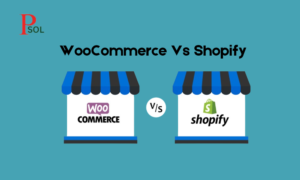Dubai is booming economy and tech-savvy population make it a prime spot for eCommerce businesses. ECommerce Business Scope in Dubai, the market is projected for significant growth, with sales expected to reach $9.2 billion by 2026. This creates a vast scope for entrepreneurs. From fashion and electronics to online groceries, Dubai offers a welcoming environment for various online ventures. With a tax-free advantage, strong infrastructure, and government support, Dubai empowers businesses to flourish in the thriving eCommerce landscape.
Why Choose E-commerce Business?
There are several compelling reasons to choose an e-commerce business in the UAE:
Global Reach of Customers:
ECommerce Business Scope in Dubai, With an e-commerce business, you can reach customers worldwide, breaking down geographical barriers and expanding your potential customer base exponentially.
Low Overhead Costs:
ECommerce Business Scope in Dubai Compared to traditional brick-and-mortar stores, e-commerce businesses often have lower overhead costs. You don’t need to invest in physical retail space, utilities, or as much staff, saving you money in the long run.
24/7 Availability to Customers:
Your online store is open 24/7, allowing customers to browse and make purchases at any time of the day or night, leading to increased sales opportunities.
Convenience Business Model:
E-commerce offers unparalleled convenience for both you and your customers. Shoppers can browse and buy products from the comfort of their own homes, and you can manage your business from anywhere with an internet connection.
Scalability of Business:
E-commerce businesses are highly scalable. As your business grows, you can easily expand your product offerings, reach new markets, and handle increased sales volume without the constraints of physical limitations.
Data-Driven Insights:
E-commerce platforms provide valuable data and analytics that can help you understand your customers better, track sales trends, and optimize your marketing strategies for improved performance.
Flexible Marketing Options:
With e-commerce, you have a wide range of marketing channels at your disposal, including social media, email marketing, content marketing, and more, allowing you to tailor your approach to reach your target audience effectively.
Ease of Entry:
Starting an e-commerce business is relatively easy compared to traditional businesses. With the right tools and resources, you can launch your online store quickly and start selling to customers almost immediately.
Market of Local E-commerce Business in UAE?
The market for local ecommerce businesses in the UAE is vibrant and rapidly growing. Several factors contribute to the flourishing e-commerce landscape in the country:
High Internet Penetration:
The UAE has one of the highest internet penetration rates in the world, with a large portion of the population having access to high-speed internet connections. This widespread internet access creates a conducive environment for e-commerce businesses to thrive.
Tech-Savvy Population:
Emiratis and residents in the UAE are known for being tech-savvy and early adopters of new technologies. They are comfortable with online shopping and often prefer the convenience of e-commerce platforms for their purchasing needs.
Rising Disposable Income:
The UAE boasts a high standard of living and a strong economy, resulting in increased disposable income among its residents. This disposable income fuels consumer spending, including online purchases, driving the growth of the local e-commerce market.
Government Support:
The government of the UAE has been proactive in supporting the growth of the e-commerce sector through various initiatives and policies. This support includes investments in infrastructure, digital transformation, and entrepreneurship programs, creating a conducive environment for e-commerce businesses to thrive.
Diverse Population:
The UAE is home to a diverse population comprising expatriates from around the world. This diversity translates into a wide range of consumer preferences and demands, providing ample opportunities for niche e-commerce businesses to cater to specific market segments.
Rapid Urbanization:
The UAE is experiencing rapid urbanization, with more people moving to urban centers like Dubai and Abu Dhabi. Urban dwellers often have busy lifestyles and prefer the convenience of online shopping, driving the demand for local e-commerce services.
Mobile Commerce:
Like many other parts of the world, mobile commerce is on the rise in the UAE. With a significant portion of internet users accessing the web via smartphones, e-commerce businesses that optimize their platforms for mobile devices stand to gain a competitive edge in the market.
Benefits Of E-commerce Business?
Starting an e-commerce business in the UAE involves several steps:
Market Research E-commerce Business:
Begin by conducting thorough market research to identify potential opportunities and understand the competitive landscape. Evaluate consumer preferences, market trends, and niche markets that you can target with your e-commerce venture.
Plan for Online Business:
Develop a comprehensive business plan outlining your goals, target market, product offerings, marketing strategies, financial projections, and operational requirements. A well-defined business plan will serve as a roadmap for your e-commerce business and help secure funding if needed.
Legal Considerations:
Register your business and obtain the necessary licenses and permits to operate legally in the UAE. Familiarize yourself with the country’s business regulations, taxation policies, and e-commerce laws to ensure compliance with local requirements.
E-commerce Business Structure:
Select a suitable business structure for your e-commerce venture, such as a sole proprietorship, partnership, limited liability company (LLC), or free zone company. Consider factors such as liability protection, tax implications, and ownership flexibility when choosing the right structure for your business.
Secure Funding for Business:
Determine the financial requirements for starting and operating your e-commerce business and explore funding options such as personal savings, loans, investors, or crowdfunding. Create a detailed budget to allocate funds for website development, inventory, marketing, and other startup expenses.
Set up Your Online Store:
Choose an e-commerce platform or build a custom website to showcase your products and facilitate online transactions. Select a user-friendly platform with features like secure payment processing, inventory management, and customizable design options to create a seamless shopping experience for customers.
Product Sourcing and Inventory Management:
Source high-quality products from suppliers and manufacturers, ensuring competitive pricing and reliable supply chains. Implement efficient inventory management systems to track stock levels, monitor product performance, and fulfill customer orders promptly.
Marketing and Promotion:
Develop a robust marketing strategy to attract customers and drive traffic to your online store. Utilize digital marketing channels such as social media, search engine optimization (SEO), email marketing, and paid advertising to reach your target audience and generate sales.
Logistics and Fulfillment:
Partner with reputable shipping and logistics providers to handle order fulfillment, shipping, and delivery operations. Optimize shipping processes, offer multiple delivery options, and provide transparent tracking information to enhance the customer experience and minimize shipping delays.
Customer Service:
Prioritize excellent customer service to build trust and loyalty with your customers. Offer multiple communication channels such as live chat, email, and phone support to address inquiries, resolve issues, and provide assistance throughout the shopping journey.
Final Thoughts:
Launching an e-commerce business in the UAE presents a wealth of opportunities in a rapidly evolving digital landscape. With its tech-savvy population, high internet penetration, and strong economy, the UAE offers an ideal environment for e-commerce ventures to thrive. However, success in this competitive market requires careful planning, strategic execution, and a customer-centric approach.




